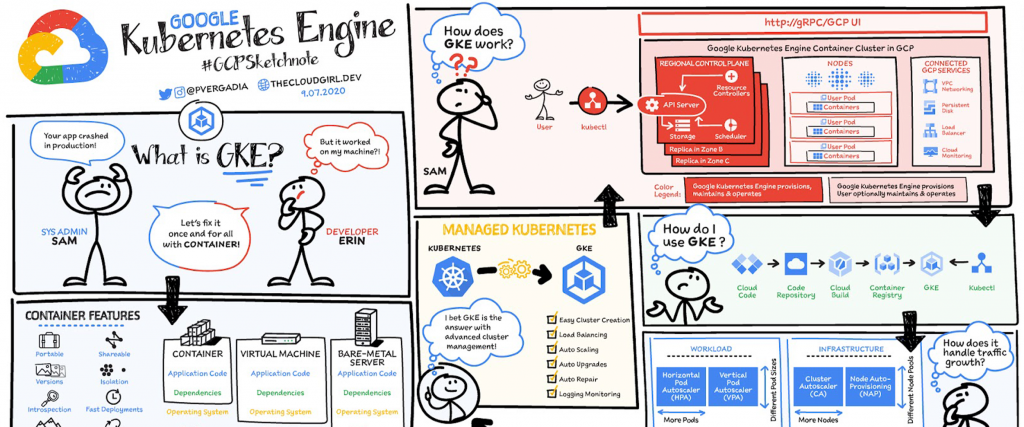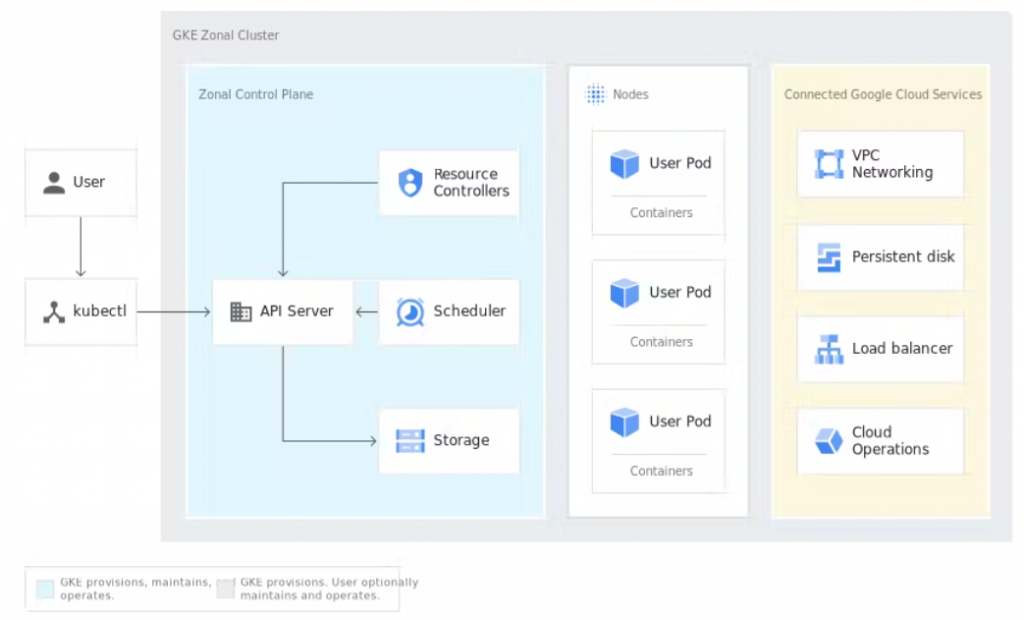Table of Contents

Google Kubernetes Engine vs Self-Managed Kubernetes
Kubernetes, a powerful tool for managing containerized applications, has gained immense popularity. If you’re thinking of using Kubernetes, you face a key decision: should you go for a managed service like Google Kubernetes Engine (GKE), or manage everything yourself? Let’s break down the pros and cons in simple terms to help you make an informed choice.
Google Kubernetes Engine (GKE)
Google Kubernetes Engine vs Self-Managed Kubernetes, GKE is a service from Google Cloud that takes care of many of the tricky aspects of managing Kubernetes. Here’s what’s good and not so good about it:
Advantages of Google Kubernetes Engine:
- Easy to Use: GKE makes running Kubernetes a lot easier. You don’t have to worry about setting up the Kubernetes cluster, upgrading it, or patching it. This means you can get started with Kubernetes without needing to be a tech wizard.
- Safety and Reliability: Google Cloud is known for being very secure and reliable. When you use GKE, you get the benefits of Google’s expertise in keeping things safe and available.
- Scales Easily: GKE can grow or shrink your clusters as needed. So, when you have more visitors, it can handle the extra work, and when things calm down, it can save resources without you doing anything.
- Works Well with Other Google Services: GKE plays nicely with other Google Cloud services, making it easy to keep an eye on how your apps are doing and fix problems.
- Managed Updates: Google keeps your Kubernetes version up to date, so you get the latest features and fixes without lifting a finger.
Disadvantages of Google Kubernetes Engine:
- Cost: All this convenience doesn’t come for free. GKE can be pricier than doing it yourself, especially for bigger projects.
- Stuck with Google Cloud: If you go with GKE, you’re pretty much locked into using Google Cloud. Switching to another cloud provider can be a pain.
Self-Managed Kubernetes
Google Kubernetes Engine vs Self-Managed Kubernetes, Managing Kubernetes on your own means setting up and looking after your clusters, either on your own servers or on a cloud platform. Let’s see what’s good and not so good about that:
Advantages of Self-Managed Kubernetes:
- Full Control: You have total control over your clusters. You can set things up exactly how you want, choose your infrastructure provider, and have lots of flexibility.
- Saves Money: Self-managed Kubernetes can be more cost-effective for larger projects. You only pay for the resources you use, without added service fees.
- Can Work Anywhere: You’re not tied to one cloud provider. You can use different providers or mix in your own hardware.
- No Lock-In: You’re not trapped with a single provider, which gives you more options in the future.
Disadvantages of Self-Managed Kubernetes:
- Complex: Managing Kubernetes yourself can be complex and time-consuming. You need a skilled team to get things set up and keep them running smoothly.
- Extra Work: You’ll need to put in the effort for tasks like upgrading the cluster, applying security patches, and solving problems. This can distract you from your main job of developing applications.
- Security and Compliance: Keeping things secure and compliant is all on you. This can be a challenge without the support of a managed service.
- Scaling is on You: Scaling your clusters isn’t as simple as with managed services. You’ll have to plan and do it manually.

In a Nutshell of Google Kubernetes Engine vs Self-Managed Kubernetes
The decision between Google Kubernetes Engine vs Self-Managed Kubernetes depends on your needs, resources, and expertise. GKE is great for those who want an easy, reliable, and integrated solution but are willing to pay for it. Self-managed Kubernetes is the way to go if you need control, want to save on costs and plan for multiple cloud or on-premises setups. Before making a choice, think about your organization’s goals, budget, and technical capabilities.

Leave a Reply